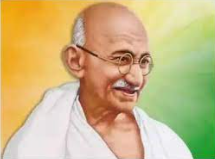Contents
Mahatma Gandhi, as his original name “Mohandas Karamchand“, is the spiritual and political leader who helped and enabled India to gain their freedom by his peaceful and non-violence actions. He is also a world-wide influential activist who adopts non-violence and peaceful views, words and actions. By the way, as mentioned above, Mahatma (Supreme Spirit) is not his real name, the meaning of mahatma is the “Supreme Spirit“, as a nickname given to him due to result of his services by the people of India.
M. Karamchand, who was influential almost all over the world with his actions and freedom ideas, has been an example of many oppressed people in the world that fight for their rights or independence, especially American black citizens and their pioneers Martin Luther King.
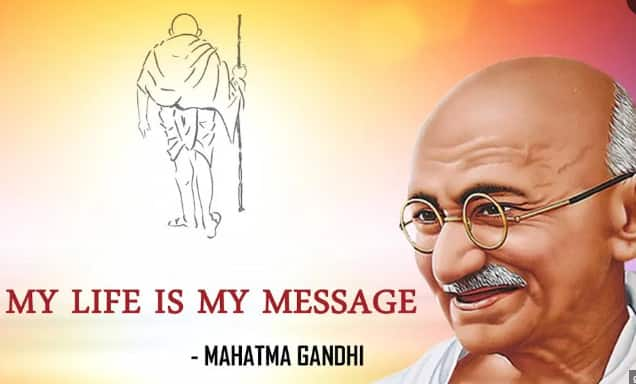
Reading the life stories of such historical characters will inspire us all to work harder, as well as understanding their vision. In this context, when we understand them, our belief that the world will be a better place in the future will increase. In this sense, his life full of struggle will be an inspiration for all of us. Our duty is to apply and keep his principles and legacy alive in our lives.
Early Life and Education: The Making of Mahatma Gandhi
At this point, we would like to mention that; we believe that the knowledge of the life stories and biographies of people who leave great traces and influences to world’s historical, social and political developments will have a positive impact on your career, general culture and personal development indirectly. In addition, we want to introduce them to you by shedding light on the life stories and important views of important historical and influential personalities instead of classic biographies that are almost exactly the same type from the search engines.
Now it’s time for the pioneer of the “Indian Independence Movement” and unfortunately a sad victim of an assassination Mahatma Gandhi. I hope you read it without getting bored and learn new things.
South African Years: Shaping Gandhi’s Philosophy
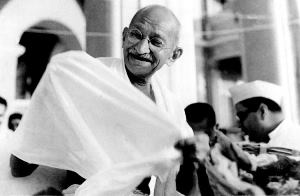
He was born on October 2 in a family of Hindu on 1869 and was born as a member of the “Employee Class” which is one of the castes in the caste system in India, as it is known. As a natural consequence of the country’s situation and caste system, Mahatma married a woman who was 13 years old and then went to England to study law at the age of 19 in 1888 as a result of his family’s suggestion and request.
In that period when he studied law in the University College London, he adopted teachings and principles as a result of his personal preferences such as purification, no-meat eating, not harming other living things and tolerance in caste system which include partial fasting.
Although he returned to his country after the legal education and tried to do a short-term teaching job his country, which was a British colony at that time, left the teaching profession as a result of a dispute with an English officer while trying to perform his profession.
Thereupon, in 1893, Mahatma Gandhi went to South Africa, another English colony. Here, since he experienced the excessive discrimination and pressures applied to the Indian people, a movement of awakening and resistance were begun by him. In his own words, the foundation of the actions and ideas that would give birth to the Indian Independence Movement were based on what he experienced in South Africa. Then, he established the Indian Congress in Natal province in South Africa where he lived in 1894 and organized the organization and gathering of the Indians there.
The Philosophy of Satyagraha: Nonviolent Resistance in Action
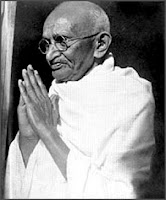
Mahatma Gandhi, who made the passive protest in South Africa in 1906 for the first time, invited everyone to the non-violent resistance against the acceptance of the law of the government which included to register and record of the Indians without their permission. Finally, He and Indian friends, who were imprisoned for this cause and who were subjected to oppression with violence for years, finally took what they wanted.
Gandhi, who adopted the philosophy of Satyagraha, which has matured in South Africa for years and contains non -violent active resistance, returned to his country in 1915 and continued his struggle. In those years, problems such as poverty and inequality caused by the caste system in his country, which was the Great British colonial, were extremely high. At that time since there were huge cleaning problems in streets, he also pioneered the cleansing of the states. This movement gained him popularity among ordinary people.
In the same period, the British colonial police arrested him, who organized the non-violent rebellion against the heavy taxes imposed by the British government. With these incidents, hundreds of thousands of people from the people of the region were gathered to support him, whose reputation was spread, then the police were to compel to release him.
Together with these events, He has increased social support and was started to called Bapu/Father and Mahatma/Supreme Spirit nicknames.
Salt March and Mahatma Gandhi’s Legacy: Lessons for Us!
In March 1920, in response to the heavy salt tax imposed by the British Government, he started to the most influential action against the British government, which called the famous “Salt March”. In this action, which includes walking towards the sea to make its own salt, Gandhi was accompanied by about thousands of Indian People. As a result of this famous Salt March, thousands of people were imprisoned, but one year after the walk, the British government was compelled to reach to an agreement with him called Salt Act because of pressure of public.
On the other hand, after the beginning of World War II, he, who increased his calls for independence, called for England to leave India and was arrested again.
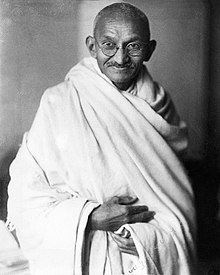
At the same time, his wife, who was also detained in 1944, died in prison and then when he had a malaria crisis, the British government, who feared from the reaction of the people, released him again. In 1948, while walking in the garden of his house in New Delhi in India, he was shot dead by an extreme Indian nationalist.
He had always been an intellectual and influential political leader in favour of peace and passive resistance. Some of the principles of him, the founder of the Indian Independence Movement and the most important leader of India to gain independence, are as follows;
- Peace
- Passive resistance
- No-Meat/Veganism
- Truth
- Simplicity
- Belief
